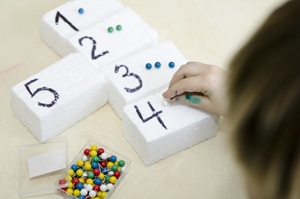Building math skills at home |
|||
 Math is a subject that can become increasingly frustrating for kids. From kindergarten to high school, learning to grasp various equations and formulas is difficult, but parents can make an effort to instill relevant mathematical knowledge from an early age. There are several strategies adults can use at home to teach kids how to develop their understanding of numbers. Games Card games are also useful for this purpose, including crazy eights or go fish. When playing with cards, children get the chance to work on their numeral recognition. Engaging kids in card games can work for older students as well. By teaching middle and high schoolers how to play games like cribbage, parents can help them work on mental math abilities. This is accomplished because players have to hit certain numbers throughout the game in order to score. Real-world applications Another real-world application students can perform is adding up the items bought as you make your way through the store. Have your child write down the price of each item you grab and add up the various amounts until you're done. Compare the final grocery price with the list to check the math. For older kids, allow them to help out at home by balancing the checkbook. Again, they'll get the real-world aspect of the task and learn why it's important to keep track of finances. By letting your kids help out with these various tasks, they'll learn why the subject is so useful, and they'll also be given a chance to sharpen their skills outside of the classroom. Don't stop at these real-life equations, either. Challenge your children to use math every day. School Family suggests having children figure things like the final price after a discount or a restaurant tip. |

|
||
